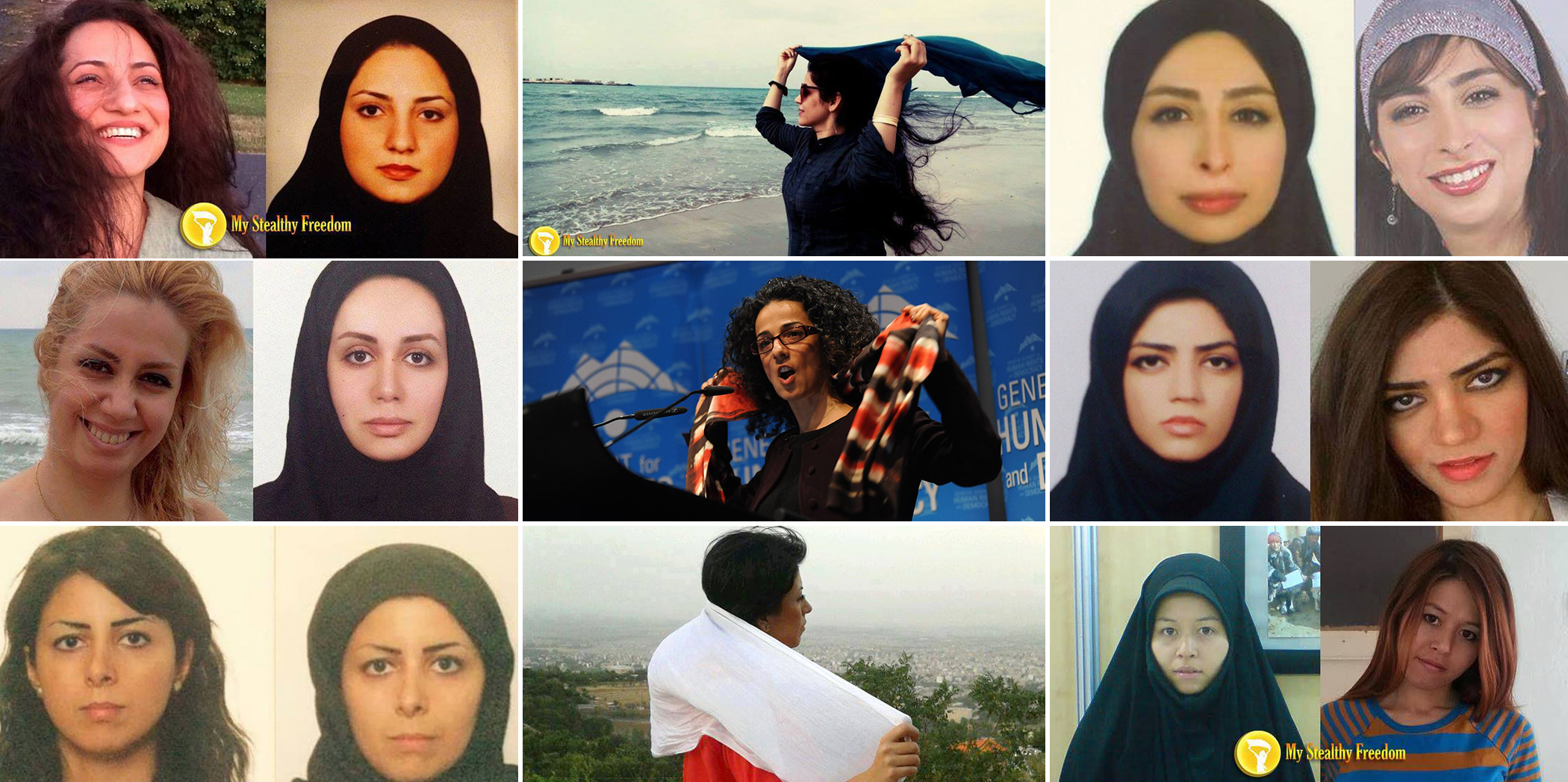Meet the Facebook-savvy activist behind Iran's headscarf revolt
"Being a woman in Iran is like being involved in a daily war."

A free daily email with the biggest news stories of the day – and the best features from TheWeek.com
You are now subscribed
Your newsletter sign-up was successful
Iranian journalist Masih Alinejad says she got goose bumps when Facebook chief operating officer Sheryl Sandberg commented a few days ago that her favorite page on the social network is the one Alinejad launched last summer.
Called "My Stealthy Freedom," Alinejad's page has a simultaneously empowering and risky purpose: to collect and publish images of women inside Iran who aren't wearing the required headscarf.
Alinejad publishes the images as fast as she gets them, pushing out stories of defiance, strength, and personal freedom to her page's nearly 774,000 followers. It's the reason she was given the women's rights award this month at the seventh annual Geneva Summit for Human Rights and Democracy, an event sponsored by a coalition of 20 human rights NGOs from around the world. And it's why Facebook's Sandberg called Alinejad a hero, saying, "Every day I'm inspired by pictures from My Stealthy Freedom in my news feed. I'm grateful to Masih for creating a page that gives a voice to women in Iran, and that gives people around the world a chance to learn from their courage."
The Week
Escape your echo chamber. Get the facts behind the news, plus analysis from multiple perspectives.

Sign up for The Week's Free Newsletters
From our morning news briefing to a weekly Good News Newsletter, get the best of The Week delivered directly to your inbox.
From our morning news briefing to a weekly Good News Newsletter, get the best of The Week delivered directly to your inbox.
Being called one of Sandberg's heroes is the part that Alinejad says especially delighted her, because it meant that "one of the most powerful women in the world — she heard us."
Alinejad's remarks during the Geneva summit also helped carry her message to a larger audience. Seated in front of a laptop during the summit, with ringlets of curly black hair framing her face, Alinejad recounted to attendees how, after she left Iran as an adult and pursued her work as a freelance journalist, her reporting was focused on the dark consequences of life inside a repressive state. She wrote of torture, imprisonment, shootings — and one day was struck by how "really cheerless and sad" her Facebook page had become.
So she decided to post a picture of herself happily running in the streets of London.
The message wasn't lost on women back in Iran, who responded that the image reinforced their own lack of personal freedom. That's why Alinejad says she decided to launch the "My Stealthy Freedom" page, focused on the hijab.
A free daily email with the biggest news stories of the day – and the best features from TheWeek.com
"Every time I feel the wind through my hair, it reminds me of the time when my hair was a hostage in the hands of the Iranian government," she tells The Week by phone from New York, where she moved six months ago.
The images and accompanying stories on Alinejad's page together paint a picture tinged with hope and defiance in equal measure, from women who Alinejad says deserve the freedom to choose whether to cover their hair or not.
One young woman in recent days posted an image of herself wearing sunglasses, laying on what appeared to be a mountain. An English translation reads: "Down there we are not free. Down there is a big city [Tehran]. Up here I am far away from the shackles of down there. And I let the mountain air cool down my head, the head which is too hot from being constantly covered down there."
Another woman, who likewise posted an image of herself without her head covered, declared: "We have never asked to go to heaven by force. Do not turn our lives in this world to hell for the sake of that heaven. We would like to taste the real freedom, not the stealthy one."
Starting from age 7, Alinejad explains, women in Iran who choose not to wear the traditional hijab face punishment like beatings, as well as ostracization. Posting the stories of those women presenting themselves uncovered in moments of quiet independence — thus the page's reference to "stealthy freedom" — also serves the dual purpose of striking back against the broader unevenness of the playing field for Iran's women, of which the hijab represents but one piece.
In response to her efforts, Alinejad says the Iranian government has mounted a smear campaign against her that's included public comments intended to damage her reputation — things like calling her a prostitute for not wearing the hijab.
"Being a woman in Iran is like being involved in a daily war," Alinejad says. "Every day is a fight with the government for your basic rights. This is why I believe Iranian women need a hair revolution. Just their hair alone can scare the government."